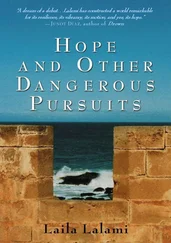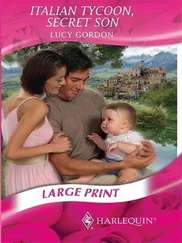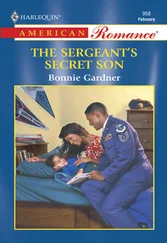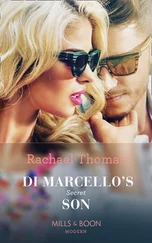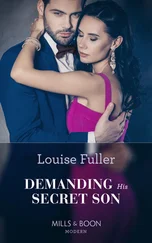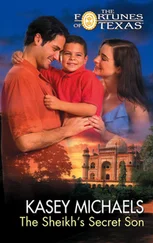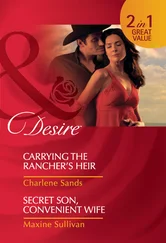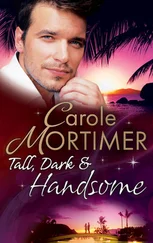What do you hope English-speaking audiences will take away from your novel?
As a novelist, I try to tell the most engaging, the most complex, and the most truthful story I can. So my hope is that audiences are engaged and immersed in the story, and that they see a truth, however small it may seem, about the human heart.
Many American readers are unfamiliar with African literature, either in translation or written in English. What other African novelists or short story writers would you recommend?
The work of J. M. Coetzee always hits me with the full force of revelation. Readers who have not had the pleasure of reading him yet might begin with Waiting for the Barbarians, Life and Times of Michael K ., and Disgrace . I would also recommend Distant View of a Minaret by Alifa Rifaat; Season of Migration to the North by Tayeb Salih; For Bread Alone by Mohamed Choukri; Year of the Elephant by Leila Abouzeid; A Man of the People by Chinua Achebe; In the Eye of the Sun by Ahdaf Soueif; This Blinding Absence of Light by Tahar Ben Jelloun; Weep Not, Child and The River Between by Ng  gí wa Thiong’o; Desertion by Abdulrazak Gurnah; Fantasia: An Algerian Cavalcade by Assia Djebar; The Radiance of the King by Camara Laye; and Palace Walk, Palace of Desire , and Sugar Street by Naguib Mahfouz.
gí wa Thiong’o; Desertion by Abdulrazak Gurnah; Fantasia: An Algerian Cavalcade by Assia Djebar; The Radiance of the King by Camara Laye; and Palace Walk, Palace of Desire , and Sugar Street by Naguib Mahfouz.
Secret Son makes references to Moroccan social, political, and historical contexts with which most Americans might be unfamiliar. What resources would you recommend for your American readers who want to understand contemporary Morocco?
I think one might begin by reading Morocco’s poets, short story writers, and novelists, though unfortunately many of them are not translated in English. However, readers might be able to find translations of Driss Chraïbi, Leila Abouzeid, Abdellatif Laâbi, Mohammed Khaïr-Eddine, Tahar Ben Jelloun, Mohamed Berrada, Abdelkebir Khatibi, Mohamed Choukri, and Bensalem Himmich. I would also suggest reading the work of the feminist and sociologist Fatima Mernissi, the historian Abdallah Laroui, and the anthropologist Abdellah Hammoudi.
You’ve lived in the United States for the past several years and also spent time in London. One of your characters, Amal, experiences great conflicts about the choice between living in the United States and returning to Morocco. How has this choice played out in your own life? Where do you consider “home”?
For the first twenty years of my life, I lived in the same house, had the same circle of friends, and visited the same places. But afterward, things changed somewhat drastically; I went to college in London and in California, I traveled a lot because of my work, and I moved nine times in the last fifteen years. I think we now live in a world where such a life is wholly unremarkable, but you’re right, it does raise the question of what one might consider home. It isn’t something that I have fully resolved yet, but I hope that my life is in some way like the Qur’anic parable of the good word — a tree firmly rooted but with its branches in the sky.
Your blog (lailalalami.com/blog) provides interesting commentary on reading, writing, and political issues. How does blogging inform or complement your other writing? What do you hope readers gain from your blog?
I started blogging mostly because I wanted to have a space in which to record my thoughts about literature, culture, and politics. The ongoing, online conversation about books and literature helped introduce me to books I would not normally have come across on my own. So I would say that blogging has certainly informed my reading. I hope readers have that same experience — that they find books or articles that intrigue and interest them.
Given the outcome of Youssef’s story and the bleak outlook you paint for other young characters, particularly men, of his class, what kind of future do you see for your native country? Do you propose any solutions that could help derail the seemingly inevitable march toward violence and terrorism?
I am merely a writer, not a prophet. The future of Morocco is dependent on so many factors — geopolitical, economic, social, educational — that it would be hard, if not impossible, to predict. Despite the bleak outlook in the novel, I try to be optimistic about the future because, to paraphrase Martin Luther King, the arc of the moral universe is long, but it bends toward justice.
Your first collection was entitled Hope and Other Dangerous Pursuits . Is it foolhardy for characters like Youssef to hope for or dream of a different reality?
I wanted the title of that first book to capture the courage and willpower it takes to want to start a new life somewhere else, as well as the desperation and danger that underlie such a decision. Although they come from different cities in Morocco and although they are leaving the country for different reasons, my characters all share the dream of a better tomorrow. What intrigued me was the idea that they were risking their very lives for the sake of a better life. This is such a huge gamble. Of course it is not foolhardy to hope. Hope is what drives us everyday, but hope occasionally needs to be restrained by common sense.
Issues of journalistic integrity, investigation, and truth are central to your novel. As someone who has written a number of opinion pieces and essays for a variety of media, how would you characterize the state of journalistic inquiry today in Morocco and in the United States?
One of my main concerns in Secret Son was the idea of truth, and how hard it is to get at it because of a variety of limitations: how facts are reported to us; how and when we perceive them; how our individual life experiences shape the way we interpret the facts; and how the facts themselves don’t necessarily add up to the truth. I think journalists, both in Morocco and in the United States, are a very diverse bunch. There are some good journalists and there are some bad ones. Some are dedicated to verifying facts and some are quite content with repeating whatever the government is telling them. It’s really impossible to generalize and compare all of the professionals in both countries.
You teach at the University of California, Riverside. How would you compare the young Americans you teach with Moroccan college students like Youssef? How do your students understand world events, particularly terrorism and extremism?
I would say that the students are very similar in their concerns: they are all worried about getting a good education, finding a job after graduation, enjoying their youth, etc. But of course there are vast differences in the way in which they interpret the world around them. If you ask them to read the same story or watch the same movie— Invisible Man , for instance, or Lawrence of Arabia —they might interpret the book or movie quite differently. This is because they have different agendas: they have been exposed to different literatures, different movies, different languages, different political realities. And they bring these different experiences to bear on their interpretations.
What are you working on now? What themes would you like to explore in forthcoming works?
I am working on a novel about a young professor — and that is all I can say about it right now.
1. What, if anything, did you know or believe about Morocco before reading Secret Son? How did reading this novel confirm or change any of your preexisting beliefs?
Читать дальше
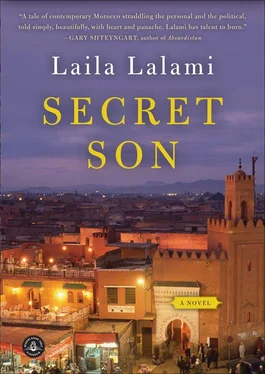
 gí wa Thiong’o; Desertion by Abdulrazak Gurnah; Fantasia: An Algerian Cavalcade by Assia Djebar; The Radiance of the King by Camara Laye; and Palace Walk, Palace of Desire , and Sugar Street by Naguib Mahfouz.
gí wa Thiong’o; Desertion by Abdulrazak Gurnah; Fantasia: An Algerian Cavalcade by Assia Djebar; The Radiance of the King by Camara Laye; and Palace Walk, Palace of Desire , and Sugar Street by Naguib Mahfouz.